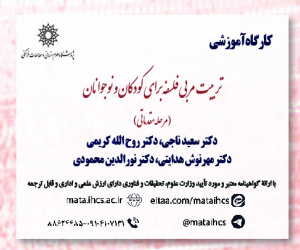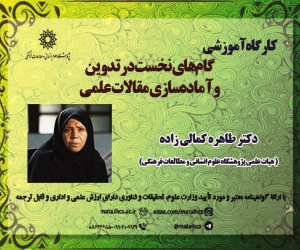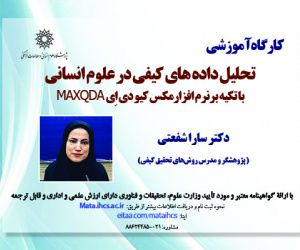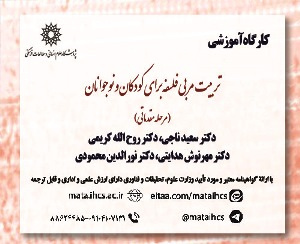امکان سنجی هنجارسازی در نظام حقوق بین الملل معاصر مبتنی بر نظریه حقوق طبیعی جدید
آرشیو
چکیده
امروزه هنجارسازی و مصادیق آن، با روش های متفاوت در حال ظهور بر پیکره حقوق بین الملل است که نظم موجود نوین حقوق بین الملل را تشکیل داده و پویایی این نظم را تحت الشعاع خود قرار داده است. اهمیت هنجارسازی ذیل اصول حقوق طبیعی، موجبات تعهدات اخلاقی در حقوق بین الملل را در اراده گرایی صِرف دولت ها حاکم می دارد و تعادل حقوق موضوعه با قرائت حداقلی حقوق طبیعی را درپی خواهد داشت. در این راستا، پژوهش حاضر به روش توصیفی، با بررسی چرایی هنجارسازی با چارچوب حقوق طبیعی نوین، به دنبال ارائه راه حلی برای چالش های مبنایی موجود در حقوق بین الملل معاصر، با رویکرد تحلیلی است که هنجارهای نوین و نوظهور، نظم موجود را تحت الشعاع قرار داده است. با توجه به اهمیت تعهدات حقوقی بین المللی در دنیای معاصر و الزام دولت کشورها به موضوع تعهدات حقوقی اخلاقی و گره زدن مفهوم اخلاق و حقوق که به زعم بسیاری ضرورتی به برقراری ارتباط میان آنها نیست، اما تغییر و تحول نظم بین المللی و احیای حقوق طبیعی نوین با تاکید بر مشارکت و همکاری دولت ها در تحکیم و رعایت خیر مشترک بین الملل، با مصادیق حقوق بشر و عدالت، مسئولیت جهانی در رعایت اخلاق مدارانه تعهدات بین الملل ازجمله تعهدات عام الشمول را پدید آورده و امکان سنجی هنجارسازی بر مبنای قواعد حقوق طبیعی ذیل حقوق موضوعه را توجیه پذیر می نماید. امروزه حقوق بین الملل پوزیتیویستی، دیگر آن حقوق سخت مبتنی بر اراده گرایی محض دولت ها نیست و اعتبار قواعد حقوق بین الملل با کمک تعقیب خیر مشترک بین الملل، و با پاسداشت ویژگی های ارزش های مشترک ذیل حمایت و حفاظت از حیات جمعی بشر، حقوق همبستگی، صلح و امنیت انسان مورد توجه قرار گرفته است. انعکاس این ارزش های مشترک بشریت ذیل هنجارهای نوین حقوق بین الملل، تعهدات اخلاقی موازی دولت ها را در تضمین منافع فردی و اجتماعی، با حاکمیت قانون و هنجارهای حقوق طبیعی، در قالب حقوق بشریت به دنبال دارد.The Feasibility of Normativity in Contemporary International Law Based on New Natural Rights Theory
Today, normativity and its different types are emerging in whole system of international law in various ways, which has formed the existing new order of international law and overshadowed the dynamics of it. The importance of norm making under the principles of natural rights and natural law, causes moral obligations in international law under the free will of states resulting in the balance of positivist law with the emphasis of minimum of natural law. In this regard, by hiring the descriptive method, this research examines why norm-making with the framework of modern natural law, seeks to provide a solution for the basic challenges in contemporary international law through an analytical approach, so emerging norms have overshadowed the existing order. Considering the importance of international legal obligations in the contemporary world, the obligation of state-countries' to moral legal obligations and tying the concept of morality and law-though to many there is no need to establish a relationship between them- also the change of the international order and the revival of modern natural rights with emphasis on the cooperation of states in consolidating the international common good, with the highlights of human rights and justice, has created the universal responsibility in moral observance of international obligations, including universal obligations, which justifies the feasibility of normative theory based on the rules of natural rights under the positive law. Today, positivist international law is no longer hard law based on the pure will of states due to the validity of international law rules with the help of the pursuit of the international common good, and by safeguarding the characteristics of common values under the protection of human collective life, the rights of solidarity, peace and human security, respectively have been in the center of attention. The reflection of these common values of humanity under the modern norms of international law follows the parallel moral obligations of states in guaranteeing both individual and social interests on the basis of the rule of law and norms of natural rights, in the form of human rights.











